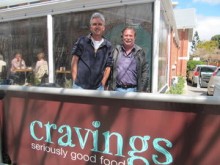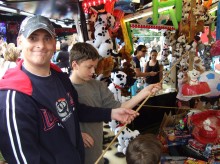During his commissioning days, Huseyin set up a ‘Secret Shopper’ project, as he was not convinced that what he and his colleagues were being told by a contracted service provider was actually the reality. Ex-service users were trained to play a number of different roles and told to take various actions with the service. The service provider was informed that Secret Shoppers would be visiting them. The service was provided with a copy of the final report. Huseyin describes some of the experiences of the Secret Shoppers.
Please check out more of Huseyin’s Recovery Voices films.

 In the early 2000s, I saw how different addiction treatment services operated in Wales. Here, I outline the approach adopted by the government-led addiction treatment system, which was heavily influenced by the 1998 UK Drug Strategy, and describe some of its shortcomings. I discuss what I saw at West Glamorgan Council on Alcohol and Drug Abuse (WGCADA) in Swansea in relation to ideas related to self-healing and the therapeutic process. (2,962 words)
In the early 2000s, I saw how different addiction treatment services operated in Wales. Here, I outline the approach adopted by the government-led addiction treatment system, which was heavily influenced by the 1998 UK Drug Strategy, and describe some of its shortcomings. I discuss what I saw at West Glamorgan Council on Alcohol and Drug Abuse (WGCADA) in Swansea in relation to ideas related to self-healing and the therapeutic process. (2,962 words) On the 10th of April, my close friend Michael Scott will celebrate his 45th Recovery Birthday.
On the 10th of April, my close friend Michael Scott will celebrate his 45th Recovery Birthday.

 When you ask people what difficulties a person faces when trying to overcome heroin addiction, most will focus on the early withdrawal symptoms, which comprise both physical and psychological elements.
When you ask people what difficulties a person faces when trying to overcome heroin addiction, most will focus on the early withdrawal symptoms, which comprise both physical and psychological elements. Here is a very important blog post that I
Here is a very important blog post that I  Another really except blog post on
Another really except blog post on  Slaying the Dragon: The History of Addiction Treatment and Recovery in America
Slaying the Dragon: The History of Addiction Treatment and Recovery in America The second of a two-part conversation that Toby Seddon had with Mark Gilman. ‘
The second of a two-part conversation that Toby Seddon had with Mark Gilman. ‘ I earlier began a series of blog posts (starting
I earlier began a series of blog posts (starting  In my
In my 

